Want to know more about the Best Zoology Schools In the US and make an informed decision? Here is a good place to start.
Are you a wildlife enthusiast looking to turn your passion for animals into a career? The search for the perfect zoology school can feel like a trek through a dense jungle.
But don’t worry, we’ve got your back! Join us on an exciting expedition as we explore the wildest and most well-curated habitats for zoology education.
We’ll guide you through the maze of options, and by the end, you’ll be ready to unleash your inner David Attenborough or Jane Goodall. So, grab your binoculars, and let’s embark on this adventure together!
Please note that schools are selected based on our criteria (at the end of the article), ranked by the latest acceptance rate.
Table of Contents
#25. University of Georgia


- Acceptance rate: 98%
- Average entry score: 1270-1450 SAT or 29-33 ACT
- Student-to-faculty ratio: 17 to 1
- Estimated cost of attendance (tuition and fees): $27,958-$46,998
- Average earning potential for graduates: $24,100 (College Simply)
The zoology programs at the University of Georgia produce graduates with a deep understanding of animal behavior, ecology, and evolution.
Students gain practical experience in research, data analysis, and presentation skills through independent study, internships, and fieldwork. This prepares them for careers in conservation, wildlife management, veterinary medicine, and academia.
Graduates are equipped to tackle pressing global issues related to biodiversity loss, climate change, and zoonotic diseases. They are also well-prepared for further academic study in related fields.
Source: Biological Science, UGA
#24. Kansas State University
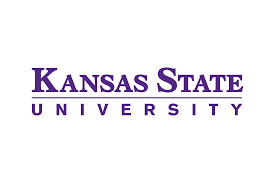

- Acceptance rate: 95%
- Average entry score: 1165 SAT or 24-28 ACT
- Student-to-faculty ratio: 18 to 1
- Estimated cost of attendance (tuition and fees): $42,057
- Average earning potential for graduates: $32,800 (College Simply)
Kansas State University is one of the leading institutions for zoology education. This is not just because of the quality of their programs but also because of the professors who teach in them.
The zoology professors at Kansas State University are some of the most highly-regarded experts in their field.
Backed by a wealth of experienced faculty, the department has been able to provide students with the tools to succeed in their future careers.
Source: Kansas State University
#22. Auburn University
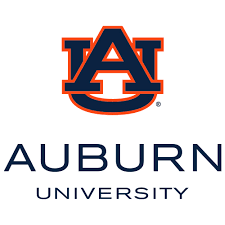

- Acceptance rate: 85%
- Average entry score: 1170-1350 SAT or 24-30 ACT
- Student-to-faculty ratio: 20 to 1
- Estimated cost of attendance (tuition and fees): $32,678-$52,838
- Average earning potential for graduates: $30,000 (College Simply)
Auburn University’s zoology programs have a strong emphasis on research. This exposes students to the latest research in their field and gives them a competitive advantage when applying for jobs.
The faculty members are known for their expertise in their respective fields. They bring their knowledge and experience to the classroom, encouraging students to ask questions, explore new ideas and challenge themselves.
The program also offers small class sizes, allowing for personalized attention from professors.
Source: Auburn University
Similar articles like this:
- 25 Best Schools For Soil Sciences In The US
- 25 Best Art History Schools In The US
- 25 Best Schools For Aerospace Engineering In The US
#21. Colorado State University
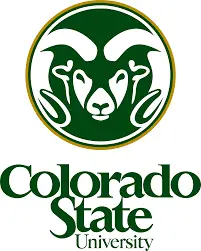

- Acceptance rate: 84%
- Average entry score: 1175 SAT or 26 ACT
- Student-to-faculty ratio: 17 to 1
- Estimated cost of attendance (tuition and fees): $29,109-$48,389
- Average earning potential for graduates: $38,800 (College Simply)
At Colorado State University, the exceptional Zoology programs are characterized by state-of-the-art research centers, experiential learning approaches, and a wide array of courses.
Committed professors and solid ties to prestigious zoological institutions provide students with essential practical skills.
Graduates are shaped into accountable leaders through the university’s focus on ecological preservation and sustainable practices.
Source: Colorado State University
#20. Michigan State University


- Acceptance rate: 83%
- Average entry score: 1100-1320 SAT or 23-29 ACT
- Student-to-faculty ratio: 16 to 1
- Estimated cost of attendance (tuition and fees): $29,184-$54,490
- Average earning potential for graduates: $23,200 (College Simply)
Michigan State University’s zoology program stands out for its cutting-edge research, diverse course offerings, and world-class faculty. Students benefit from a hands-on approach to learning through fieldwork, internships, and study abroad opportunities.
MSU’s extensive facilities foster collaboration and innovation. The program’s strong emphasis on conservation and sustainability ensures graduates are well-equipped to tackle global environmental challenges.
Source: Michigan State University
#19. Washington State University

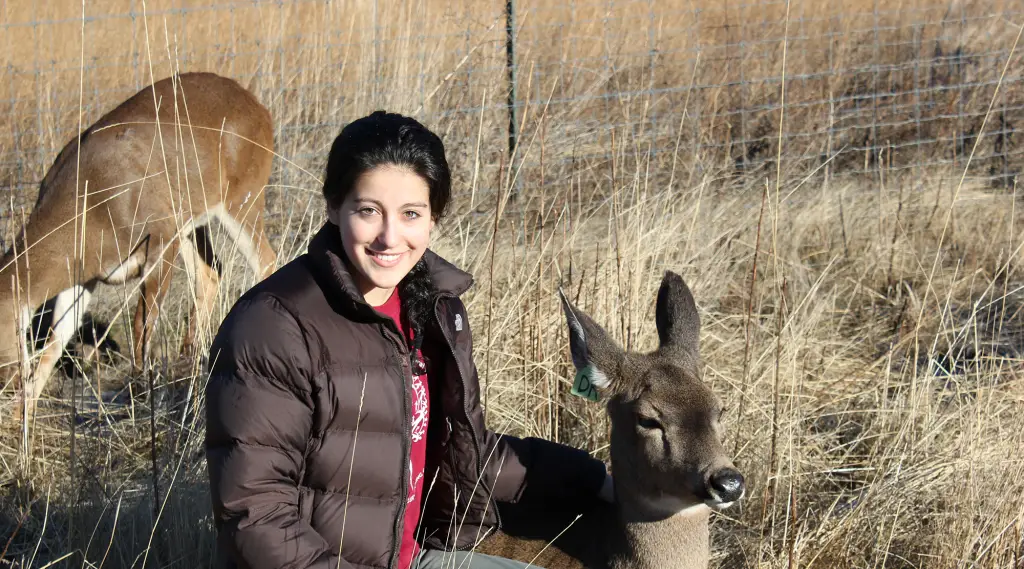
- Acceptance rate: 83%
- Average entry score: 1020-1240 SAT or 18-25 ACT
- Student-to-faculty ratio: 15 to 1
- Estimated cost of attendance (tuition and fees): $28,669-$43,985
- Average earning potential for graduates: $24,700 (College Simply)
Washington State University offers a bachelor’s degree in zoology, which focuses on the study of animals and their behavior, physiology, and ecology.
The program teaches students about the diversity of animal life and provides hands-on experience in laboratory research and fieldwork. Students also have the opportunity to participate in internships and study abroad programs.
The university also offers a graduate program in zoology, which provides advanced training in research and prepares students for careers in academia or industry.
Source: Washington State University
#18. Oregon State University


- Acceptance rate: 82%
- Average entry score: 1120-1360 SAT or 21-28 ACT
- Student-to-faculty ratio: 18 to 1
- Estimated cost of attendance (tuition and fees): $30,302-$50,405
- Average earning potential for graduates: $28,200 (College Simply)
Oregon State University offers a comprehensive Zoology program that prepares students for a wide range of careers in the field of animal biology.
Graduates from this program have a competitive edge in the job market due to the quality of education they receive, opportunities for hands-on experience with animals, and access to cutting-edge research facilities.
The program’s interdisciplinary approach also equips students with a broad range of skills, making them highly sought-after candidates for various positions in academia, research, conservation, and other related fields.
Source: Oregon State University
Similar articles like this:
- 25 Best Schools For Business Management Studies In The US
- 25 Best Schools For Programming In The US
- 25 Best Commerce Schools In The US
#17. University of Nebraska Lincoln

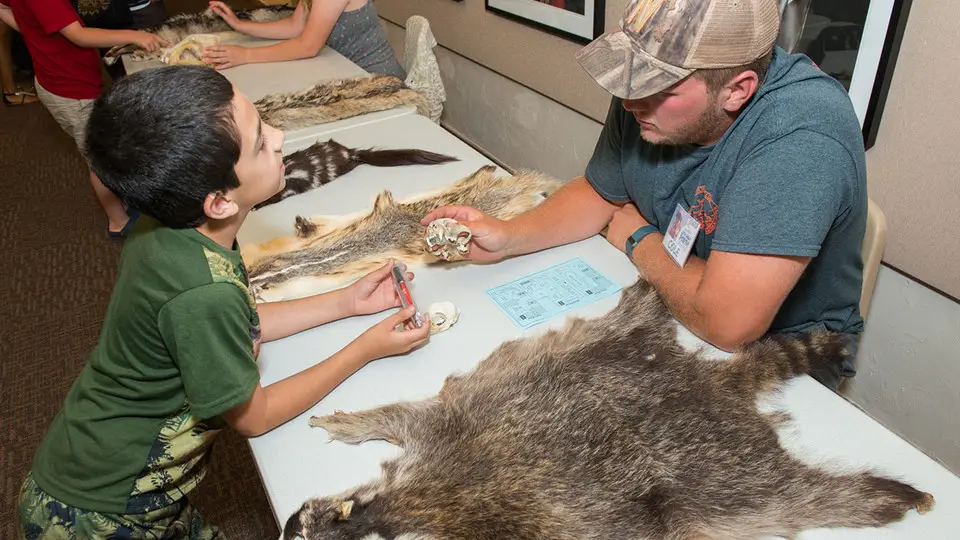
- Acceptance rate: 79%
- Average entry score: 1240 SAT or 24 ACT
- Student-to-faculty ratio: 16 to 1
- Estimated cost of attendance (tuition and fees): $26,252-$43,382
- Average earning potential for graduates: $29,300 (College Simply)
The University of Nebraska Lincoln’s animal science programs have earned a reputation as some of the finest in the US. This is due to the institution’s cutting-edge research facilities and partnerships with major corporations.
Students in the program have access to cutting-edge research and practical experience in various areas, including livestock production, animal genetics, and animal behavior.
The program also offers numerous opportunities for internships and networking, preparing students for successful careers in the animal science industry.
Source: University of Nebraska Lincoln
#16. Texas A&M University College Station


- Acceptance rate: 70%
- Average entry score: 1160-1390 SAT or 25-31 ACT
- Student-to-faculty ratio: 21 to 1
- Estimated cost of attendance (tuition and fees): $30,608-$58,976
- Average earning potential for graduates: $27,500 (College Simply)
The Zoology program at Texas A&M University College Station is designed to provide students with a comprehensive understanding of living organisms and their behavior.
They have the opportunity to work in state-of-the-art facilities and conduct research alongside renowned faculty.
Graduates of the program are well-trained professionals who are equipped with the skills and knowledge needed to pursue careers in animal science-related fields.
Source: Texas A&M University Catalog
#15. University of Illinois at Urbana-Champaign


- Acceptance rate: 60%
- Average entry score: 1210-1470 SAT or 27-33 ACT
- Student-to-faculty ratio: 21 to 1
- Estimated cost of attendance (tuition and fees): $33,060-$50,510
- Average earning potential for graduates: $25,200 (College Simply)
The animal sciences programs at the University of Illinois at Urbana-Champaign offer a comprehensive education in animal production, management, and well-being.
Students gain hands-on experience through internships and research opportunities, preparing them for a range of careers in animal-related industries.
Graduates are equipped with the skills necessary to improve the health and productivity of animals, contribute to the sustainability of agriculture, and advance the field of animal sciences.
Source: University of Illinois at Urbana-Champaign
#14. The Ohio State University


- Acceptance rate: 57%
- Average entry score: 1240-1430 SAT or 26-32 ACT
- Student-to-faculty ratio: 18 to 1
- Estimated cost of attendance (tuition and fees): $29,368-$52,451
- Average earning potential for graduates: $32,800 (College Simply)
Zoology majors at the Ohio State University study the structure, function, and behavior of animals, including their evolution and ecology.
They also explore how humans interact with animals and the environment in which they live.
As a top institution, Ohio State University is committed to providing students with an education that will prepare them for a career in zoology or related fields.
The University’s reputation for excellence ensures that graduates from this program will be highly sought after by employers.
Source: The Ohio State University
Similar articles like this:
#13. University of Wisconsin Madison


- Acceptance rate: 53%
- Average entry score: 1300-1480 SAT or 28-32 ACT
- Student-to-faculty ratio: 18 to 1
- Estimated cost of attendance (tuition and fees): $27,484-$55,372
- Average earning potential for graduates: $31,100 (College Simply)
University of Wisconsin Madison’s zoology graduates excel due to their robust curriculum, hands-on research opportunities, and dedicated faculty.
The institution’s cutting-edge facilities and strong industry connections provide an ideal environment for developing essential skills.
These graduates emerge well-prepared for diverse careers, fostering a global network of successful alumni that continually elevates the program’s prestige and impact in the field of zoology.
Source: UW-Madison Guide
#12. University of Minnesota, Twin Cities


- Acceptance rate: 49%
- Average entry score: 1330-1500 SAT or 27-32 ACT
- Student-to-faculty ratio: 17 to 1
- Estimated cost of attendance (tuition and fees): $23,110-$52,088
- Average earning potential for graduates: $34,800 (College Simply)
The University of Minnesota is one of the top schools for zoology programs. This institution combines an emphasis on research with a hands-on approach to learning. Students can take part in a wide range of field studies.
The university also has a unique blend of teaching styles and opportunities allows students to learn in ways that best suit their learning style.
Source: University of Minnesota Twin Cities
#12. North Carolina State University


- Acceptance rate: 46%
- Average entry score: 1250-1420 SAT or 27-32 ACT
- Student-to-faculty ratio: 15 to 1
- Estimated cost of attendance (tuition and fees): $24,986-$45,771
- Average earning potential for graduates: $26,900 (College Simply)
Zoology students at North Carolina State University appreciate the well-rounded curriculum offered at this school.
The university offers a diverse selection of classes, from biology and zoology to marine science and wildlife management.
Students also have access to specialized labs and research facilities. This ensures that students receive the best possible education.
Source: NC State University
#11. University of California, Davis
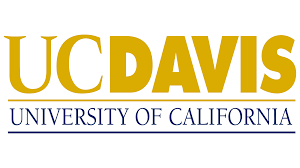

- Acceptance rate: 46%
- Average entry score: 1160-1400 SAT
- Student-to-faculty ratio: 21 to 1
- Estimated cost of attendance (tuition and fees): $37,122-$66,876
- Average earning potential for graduates: $27,100 (College Simply)
Animal biology students at the University of California, Davis enjoy the benefits of studying in one of the world’s most prestigious research universities.
They also have access to extensive animal care facilities, including the University’s veterinary teaching hospital and veterinary teaching farms.
At the end of their studies, UC Davis biological sciences students graduate with the knowledge and skills to pursue careers in fields such as veterinary medicine, laboratory animal medicine, research, and development.
Source: UC Davis
#10. University of Florida
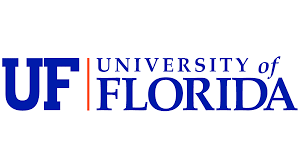
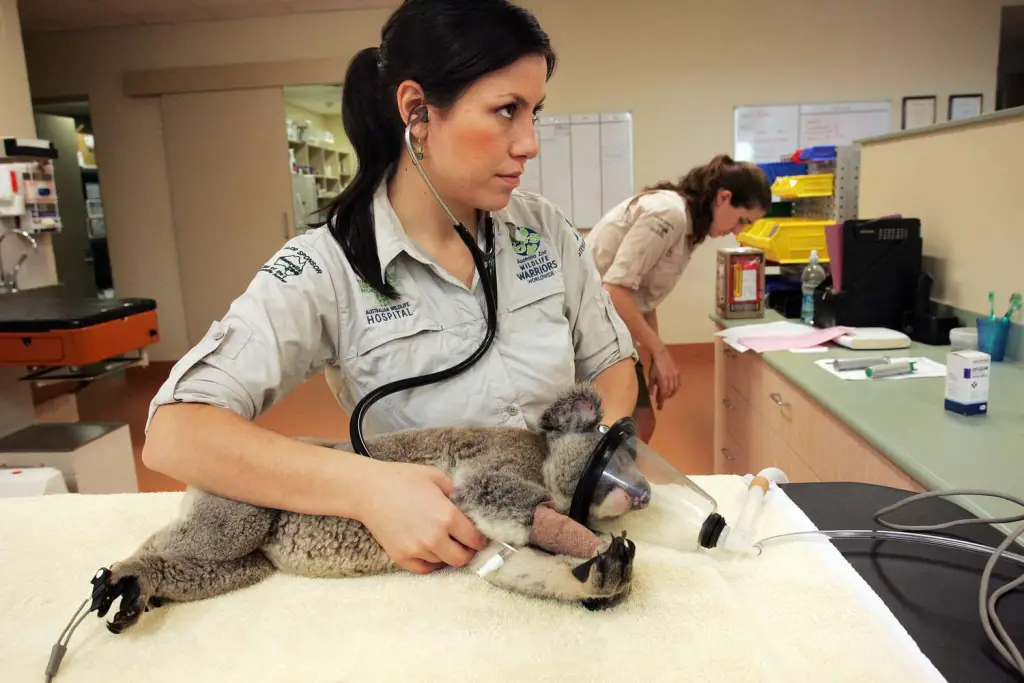
- Acceptance rate: 42%
- Average entry score: 1300-1470 SAT or 29-33 ACT
- Student-to-faculty ratio: 18 to 1
- Estimated cost of attendance (tuition and fees): $21,430-$43,708
- Average earning potential for graduates: $20,000 (College Simply)
The zoology major at the University of Florida provides students with a comprehensive understanding of animal biology and behavior.
Graduates of the zoology degree program are well-equipped for careers in fields such as wildlife conservation, animal research, and veterinary medicine.
They are also prepared to pursue advanced degrees in zoology or related fields. The program emphasizes hands-on experience, with opportunities for research and internships.
Source: UF Catalog
Similar articles like this:
- Best Schools For Geography Degrees
- 25 Best Business Administration Schools In The US
- Best Schools For Forensic Science
#9. University of Texas at Austin


- Acceptance rate: 32%
- Average entry score: 1230-1500 SAT or 29-34 ACT
- Student-to-faculty ratio: 16 to 1
- Estimated cost of attendance (tuition and fees): $28,928-$57,512
- Average earning potential for graduates: $29,100 (College Simply)
Renowned for its zoology program, the University of Texas at Austin provides students with a supportive and stimulating learning environment.
Students are able to take advantage of the university’s many research facilities and gain hands-on experience through internships and research opportunities.
The faculty also is committed to guiding students in their academic and career aspirations through personalized attention. This caps off a learning experience that is both academically rigorous and personally satisfying.
Source: University of Texas at Austin
#8. University of California, Santa Barbara


- Acceptance rate: 29%
- Average entry score: 26-31 ACT
- Student-to-faculty ratio: 17 to 1
- Estimated cost of attendance (tuition and fees): $37,415-$67,169
- Average earning potential for graduates: $20,200 (College Simply)
The Zoology program at the University of California Santa Barbara provides hands-on learning experiences for students to explore the world of animals and their environments.
This program includes courses in animal physiology, evolution, behavior, and ecology. Students will study how animals function as a result of their genetic makeup and environmental pressures.
Graduates of this program will have the knowledge and skills to work in a variety of fields, including animal control and management, zoo operations, conservation biology, wildlife ecology, and management.
Source: University of California Santa Barbara
#7. Purdue University West Lafayette


- Acceptance rate: 25%
- Average entry score: 1267 SAT
- Student-to-faculty ratio: 14 to 1
- Estimated cost of attendance (tuition and fees): $24,390-$50,000
- Average earning potential for graduates: $32,800 (College Simply)
Purdue University offers several courses for natural science enthusiasts. These upcoming zoologists enjoy a close-knit community and plenty of resources to help them succeed in the field.
The university hosts frequent workshops and events, including a career fair where students can meet with potential employers.
Many of these students go on to pursue graduate degrees, which can help them pursue careers in research, teaching, and more.
Source: Purdue University
#6. Cornell University


- Acceptance rate: 11%
- Average entry score: 1450-1560 SAT or 33-35 ACT
- Student-to-faculty ratio: 9 to 1
- Estimated cost of attendance (tuition and fees): $78,992
- Average earning potential for graduates: $32,800 (College Simply)
Cornell University’s Ivy League status elevates animal science majors through cutting-edge research facilities, distinguished faculty, and a diverse student body.
These students gain hands-on experience at on-campus farms and labs while networking with industry leaders.
The rigorous curriculum, paired with a strong commitment to sustainability, equips graduates to excel in careers within veterinary medicine, animal management, biotechnology, and academia.
Source: Cornell University
Similar articles like this:
- 25 Best Schools For Insurance Degrees In The US
- Best Schools For International Relations
- 25 Best Digital Marketing Schools In The US
#5. Princeton University


- Acceptance rate: 6%
- Average entry score: 1570 SAT or 35 ACT
- Student-to-faculty ratio: 5 to 1
- Estimated cost of attendance (tuition and fees): $78,490
- Average earning potential for graduates: $37,210 (Grad Reports)
Princeton University’s zoology programs in Ecology and Evolutionary Biology specialize in producing graduates who thoroughly understand animal behavior, ecology, and evolution.
Undergraduate students learn about the various aspects of these fields, while graduate students can specialize in areas such as conservation biology, behavioral ecology, and evolutionary biology.
The department provides research opportunities and field courses to students, preparing them to work in areas such as animal behavior research, wildlife conservation, and ecosystem management.
Source: Department of Ecology & Evolutionary Biology
What’s it like to study at Princeton University?
#4. Yale University


- Acceptance rate: 5%
- Average entry score: 33-35 ACT
- Student-to-faculty ratio: 6 to 1
- Estimated cost of attendance (tuition and fees): $84,525
- Average earning potential for graduates: $55,700 (College Simply)
Zoology students at Yale University benefit from a world-class education, esteemed faculty mentorship, cutting-edge research opportunities, and diverse coursework covering ecology, evolution, and animal behavior.
State-of-the-art facilities promote hands-on learning, while strong connections to research institutions and internships expand career prospects.
As a result, Yale’s biology programs mold zoology students into accomplished scientists and conservationists.
Source: Yale University
What’s it like to study at Yale University?
#3. Harvard University


- Acceptance rate: 5%
- Average entry score: 1460-1580 SAT or 33-35 ACT
- Student-to-faculty ratio: 7 to 1
- Estimated cost of attendance (tuition and fees): $76,963
- Average earning potential for graduates: $39,100 (College Simply)
Harvard University has a variety of zoology programs for students interested in the study of animals. The undergraduate life science program offers courses in animal behavior, ecology, and evolution.
Whereas the graduate program in Organismic and Evolutionary Biology allows students to specialize in areas such as animal behavior, marine biology, and paleobiology.
The Harvard Museum of Comparative Zoology provides opportunities for students to gain hands-on experience with animal specimens and conduct research in various animal-related fields.
Source: Harvard University
What’s it like to study at Harvard University?
#2. Massachusetts Institute of Technology


- Acceptance rate: 4%
- Average entry score: 1570 SAT or 36 ACT
- Student-to-faculty ratio: 3 to 1
- Estimated cost of attendance (tuition and fees): $77,570
- Average earning potential for graduates: $36,700 (College Simply)
The MIT Department of Biology offers undergraduate and graduate programs that foster a collaborative and interdisciplinary environment for students.
Students have access to state-of-the-art facilities and participate in research ranging from molecular biology to ecology.
With a focus on innovation and discovery, the MIT Department of Biology prepares students for careers in academia, industry, and beyond.
Source: MIT Department of Biology
What’s it like to study at MIT?
#1. Stanford University


- Acceptance rate: 4%
- Average entry score: 1470-1570 SAT or 34-35 ACT
- Student-to-faculty ratio: 5 to 1
- Estimated cost of attendance (tuition and fees): $78,898
- Average earning potential for graduates: $35,900 (College Simply)
Stanford University offers extensive zoology programs aimed at preparing the next generation of zoologists.
Students can choose from a range of courses that cover a variety of topics, including animal behavior, ecology, physiology, and conservation biology.
The program also provides students with opportunities to conduct research in the field and gain hands-on experience working with animals.
Through mentorship and collaboration, Stanford’s zoology programs aim to equip students with the skills and knowledge necessary to become leaders in the field.
Source: Department of Biology
What’s it like to study at Stanford University?
Conclusion
The best zoology schools in the US offer a diverse range of programs, cutting-edge research opportunities, and strong connections to the professional world.
These institutions, such as Cornell University, the University of California-Davis, and the University of Florida, consistently rank highly in terms of their academic excellence and dedication to the field of zoology.
Because zoology is such a wide-ranging field, it is essential for aspiring zoologists to carefully consider their individual preferences and goals when selecting the right school. This ensures they receive the education and experiences needed to propel their careers forward.
Selection Criteria
Here is a list of the factors we considered when selecting the best zoology colleges:
Please note that the order in this list might vary by ranking criteria and sources.
- Reputation and ranking of the school: We looked for schools that have a strong reputation and high ranking in the field of zoology.
- Faculty expertise, qualifications, and specialization: We researched the faculty members and their areas of expertise and qualifications to ensure that the school has professors with relevant expertise and specialization in the areas of zoology that are of interest.
- Curriculum and resources: We evaluated the curriculum to ensure it aligns with students’ interests and career goals and considered the quality of the school’s facilities and resources, such as labs, equipment, and libraries.
- Opportunities for hands-on learning and research: We looked for schools that provide opportunities for hands-on experience through internships, co-op programs, or fieldwork.
- Student support services and alumni network: We considered the availability of support services and the strength of the alumni network in providing mentorship, internships, and job opportunities after graduation.
- Extracurricular activities and diversity: We evaluated the availability of extracurricular activities and clubs that align with students’ interests and considered the school’s diversity and inclusivity.
- Networking and post-graduation support: We researched the school’s network of alumni and their post-graduation support for zoology students and also considered if the schools have a strong network of industry professionals and researchers in zoology.
Frequently Asked Questions
Q1. What is zoology?
Zoology is the study of animals. It’s a branch of biology that focuses on the scientific study of animal structure, function, evolution, classification, and behavior.
Zoologists may specialize in certain types of animals or groups (for example, mammals) or study a wide range of species.
Q2. What are the highest-paying zoology jobs?
Biologists, veterinarians, and wildlife biologists are among the highest-paid zoology jobs. Zoology careers with the most job openings include:
- Biologist
- Wildlife Biologist
- Natural Resource Specialist
Q3. What are the top zoology schools in the US?
The top-ranked schools for zoology include: Cornell University, Kansas State University, and Texas A&M University.
Q4. What do zoologists study?
Zoologists study the characteristics, life cycles, habitats, and behavior of animals. They may also study how species interact with one another and their environments.
Q5. How long does it take
to get a zoology degree?
A four-year degree in zoology is the minimum requirement to become a zoologist. Many people with a bachelor’s degree will continue their education by earning a master’s degree or doctorate to specialize in a particular area of study.
References
[1] Official Websites
[2] Salary Data from Glassdoor, Grad Reports, College Factual, College Simply, Zippia
[3] Ranking references, including news media such as Colleges Offering a Zoology Major


